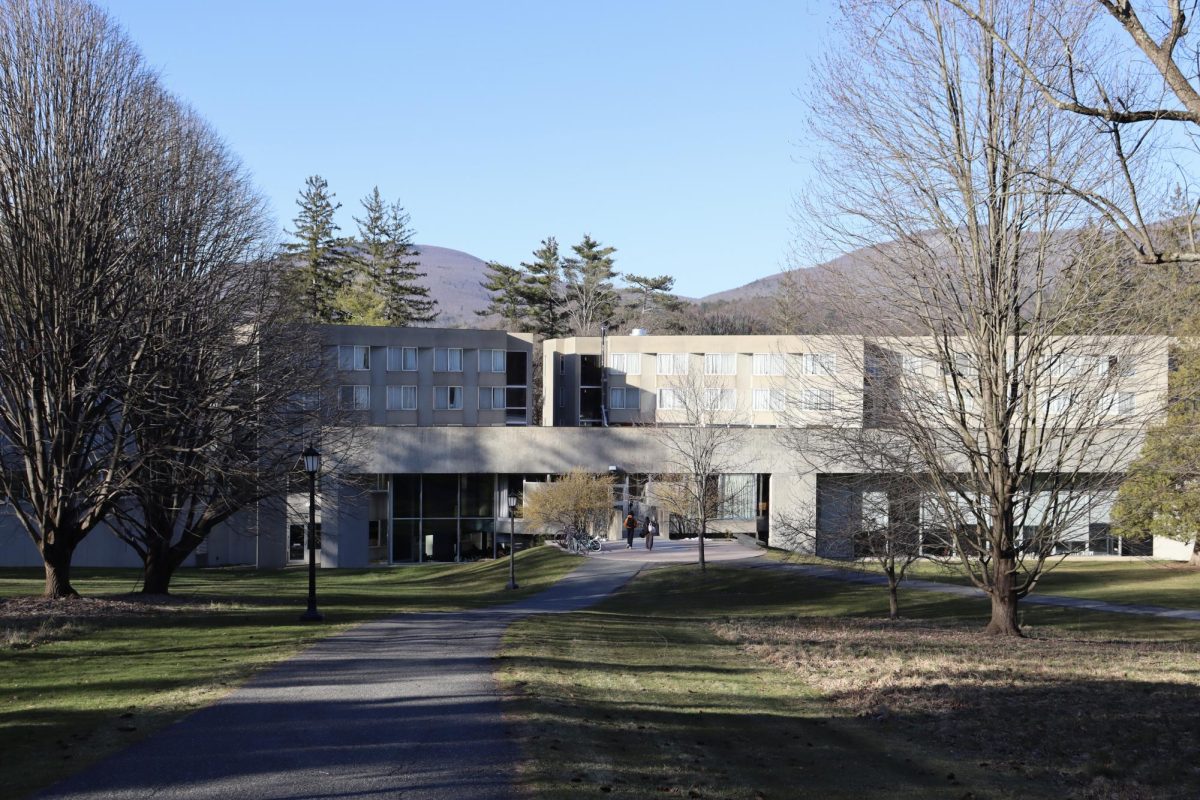For the 2024-2025 year, Fitch House has been set aside as first-year overflow housing in the event that too many students accept their offers to attend Williams. In the past, the Office of Campus Life (OCL) has used residence halls like Lehman Hall — a dorm with all singles — for this purpose. But this year, OCL has decided to use Fitch — a dorm with a combination of singles and doubles — to leave the singles in Lehman for upperclass students. Selecting Fitch for this purpose represents a way to improve the housing system in general: Leave more singles, like those in Mission Park, for upperclass students and put more first-years in doubles.
The Record reported in January that 69 percent of first-year and 56 percent of upperclass rooms are singles. Compared to other small liberal arts colleges like Swarthmore — where only 20 percent of first-years are in singles — the distribution at Williams is surprising.
Throughout the most recent housing pick process, it was evident that the demand for singles among upperclass students outweighed the supply. All of the singles were filled before the lottery ended, leaving many upperclass students to pick into flex-rooms or doubles. If singles for upperclass students are in such high demand, why do they go to first-years? The College’s priorities should be flipped so that a greater percentage of doubles go to first-years; buildings with mostly singles, like Lehman, should be reserved for upperclass students.
First-years benefit the most from being in doubles. It’s likely that your first-year dorm will not be the last time in your life that you have to cohabitate in a small space. Having a roommate teaches you how to share a space and adapt to change. It holds you accountable to stay hygienic, organized, and diplomatic. It can be a difficult adjustment for some, but it’s also an opportunity to practice necessary interpersonal skills, and it is critical to do so during your first year of college, which, for many students, is the first time they are living away from home. A study published last February in Current Research in Ecological and Social Psychology indicates that students who room with others improve their peer relationships and conflict resolution skills.
The benefits can be academic as well. One Temple University study found that, for every one-pointpoint increase in a first-year’s GPA, the student’s roommate experiences a 0.11 average increase as well. This indicates that roommates may also develop good working habits together.
Having a roommate is not all tough love and compromise — it also creates a built-in support system for many first-years moving away from home for the first time. Your roommate is often your first friend at college. Having a constant like this is important for first-years during a time when they are undergoing so much change and facing so much uncertainty. At the end of the day, a roommate is a friendly face who can give you a smile or ask you about your day, or an emergency contact if something goes wrong.
According to Surgeon General Vivek Murthy, prolonged social isolation in some cases leads to depression and anxiety. While a single room doesn’t necessarily lead to prolonged social isolation, having a roommate combats it. The first-year entry system can help decrease social isolation, but as the year goes on, activities sometimes become less frequent and less well-attended. Roommates are beneficial because they increase your rate of social interaction and connection, regardless. And needless to say, friendships are an immense contribution to your mental health.
Not everyone becomes best friends with their randomly assigned roommate, which is normal, but sharing a room forces you to connect with someone you may not have normally connected. For example, one may meet another student from a different state or different country, someone with different academic interests, or a classmate with cool hobbies. Research indicates that students improve their peer relationships and conflict resolution skills by connecting with roommates from different socioeconomic backgrounds. We grow as individuals through exposure to different viewpoints and lived experiences. Roommates bring valuable new perspectives in our lives.
Sure, there is a chance that you and your roommate won’t get along at all — but the College has extra rooms in case students need to switch out of their original room.
Lastly, there is a specific reason this change would make so much sense at the College. Moving first-years from Mission — which has mostly singles — to buildings with more doubles would also bring first-years closer to central campus. Although Mission is closer to Frosh Quad than, say, Fitch, it is far from all other parts of campus. At the bottom of a hill, Mission can sometimes feel isolated, while buildings like Fitch are close to other dorms and social centers like Goodrich Coffee Bar and Spring Street. Mission is a better dorm for upperclassmen because it offers a majority of singles, allowing upperclass students to use their pick groups to be near their friends while still having privacy.
To me, the logical solution for a lack of singles among upperclass student is to make Mission upperclass housing while moving first-year housing to buildings with more doubles near central campus.
Pauli Voelkel ’27 is from Penn Valley, Pa.









